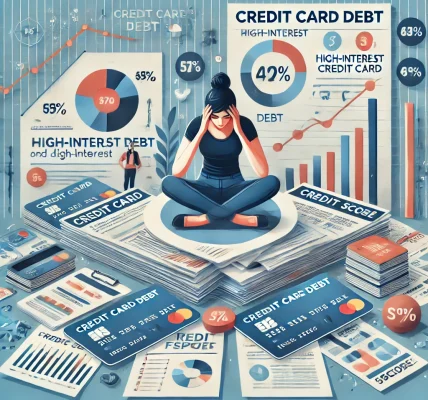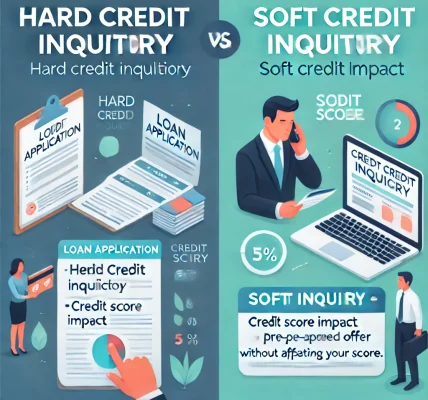Introduction
Student loans play a significant role in shaping your financial future. While they enable higher education, they also impact your credit score in multiple ways. Managing student loan debt wisely can improve your creditworthiness, helping you qualify for better financial opportunities. In this guide, we will explore how student loans affect your credit score and provide actionable strategies for effective debt management.
How Student Loans Impact Your Credit Score
Student loans influence various aspects of your credit score, both positively and negatively. Let’s break it down:
1. Payment History (35% of Your Credit Score)
- Making on-time payments improves your credit score.
- Late or missed payments can damage your credit and remain on your report for up to seven years.
- Even one missed payment can lower your score significantly.
2. Credit Mix (10% of Your Credit Score)
- Student loans contribute to your credit mix, which includes revolving credit (credit cards) and installment loans (mortgages, car loans, student loans).
- A diverse credit mix can boost your credit score as long as you manage all accounts responsibly.
3. Length of Credit History (15% of Your Credit Score)
- The longer your student loans remain active and in good standing, the stronger your credit history becomes.
- Paying off student loans early might shorten your credit history, which can slightly lower your score in the short term.
4. Amounts Owed (30% of Your Credit Score)
- High student loan balances don’t necessarily hurt your score, as long as you make regular payments.
- However, a high debt-to-income ratio (DTI) can affect loan approvals for mortgages and car loans.
5. New Credit Inquiries (10% of Your Credit Score)
- Applying for new student loans or refinancing existing loans triggers a hard inquiry, which can temporarily lower your score.
- Too many hard inquiries in a short time period can make lenders see you as a risky borrower.
Effective Strategies to Manage Student Loan Debt
Now that you understand how student loans impact your credit score, let’s explore ways to manage them effectively:
1. Make Timely Payments
- Set up automatic payments to avoid missed due dates.
- If you struggle with payments, contact your loan servicer for alternative options.
2. Consider Income-Driven Repayment Plans
- Federal student loans offer income-driven repayment (IDR) plans, which adjust your monthly payment based on your income.
- These plans ensure payments remain manageable and prevent default.
3. Refinance or Consolidate Loans Wisely
- Refinancing student loans can lower interest rates but might eliminate federal loan benefits (like forgiveness programs).
- Loan consolidation combines multiple federal loans into one, simplifying repayment without lowering your interest rate.
4. Pay More Than the Minimum When Possible
- Extra payments go directly to reducing principal, helping you pay off loans faster and saving on interest.
- Ensure additional payments are applied correctly by specifying principal reduction with your loan servicer.
5. Monitor Your Credit Report Regularly
- Check your credit report for errors related to student loans.
- If you find incorrect information, dispute it with the credit bureaus (Experian, Equifax, and TransUnion).
6. Avoid Defaulting on Your Loans
- Defaulting on student loans significantly damages your credit score and can lead to wage garnishment.
- If you’re struggling, explore deferment, forbearance, or loan rehabilitation options.
7. Leverage Student Loan Forgiveness Programs
- Certain federal programs offer loan forgiveness for public service workers, teachers, or individuals working in non-profits.
- Ensure you meet all eligibility requirements and submit the necessary paperwork on time.
Long-Term Benefits of Managing Student Loan Debt
Proper management of student loan debt leads to multiple financial benefits, including:
- A stronger credit score, allowing you to qualify for better interest rates on future loans.
- Increased financial flexibility for homeownership, car purchases, and other major life decisions.
- Reduced financial stress and improved overall financial wellness.
Conclusion
Student loans have a lasting impact on your credit score, but managing them responsibly can set you up for financial success. By making on-time payments, exploring repayment options, and avoiding default, you can maintain a strong credit profile while working toward a debt-free future.




